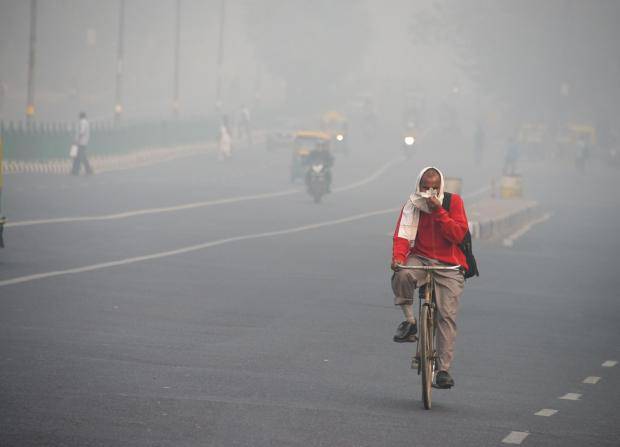Toxic smog gripping New Delhi grew more intense on Thursday as farm fires raged in nearby fields despite a court-ordered ban, making India’s capital the world’s most polluted city again.
Pollution levels have risen since earlier this week after a brief respite and further mitigation measures are being discussed, but a plan to make rain via cloud seeding to battle the smog has been pushed back due to unfavourable weather.
The city held the top spot on a real-time list of the world’s most polluted cities on Thursday, with an air quality index of 509 around noon, according to Swiss group IQAir which categorised the air quality as “hazardous”.
A northwesterly wind blowing over the city is carrying smoke from farm fires in nearby fields and the wind speed within Delhi is light and unfavourable for dispersion of pollutants, a meteorological department official said on condition of anonymity.
There were more than 2,500 farm fires in Punjab state on Wednesday, north of Delhi, as farmers defied a Supreme Court-ordered ban on crop residue burning and the local police warned of legal action against them, The Indian Express newspaper reported.
Air quality in the plains of northern India worsens every winter when cold air traps emissions from multiple sources including vehicles, industries, construction dust and agricultural waste burning.
Delhi’s Environment Minister Gopal Rai told ANI news agency that authorities are trying to enforce laws in a better way and that a meeting would be held later in the day to discuss further measures.
So far, the city has banned all construction, closed schools to protect children, stopped the entry of non-essential petrol and diesel trucks into the city and deployed vehicles to spray water in the air to control pollution.
A lack of cloud cover over the city has pushed back the plan to seed clouds, which was originally scheduled around Nov. 20, said Manindra Agrawal, a scientist at the Indian Institute of Technology at Kanpur, who is leading the trial.
“Last week radars were indicating cloud cover around that time and now they are no longer indicating that,” Agrawal said.
(REUTERS)














